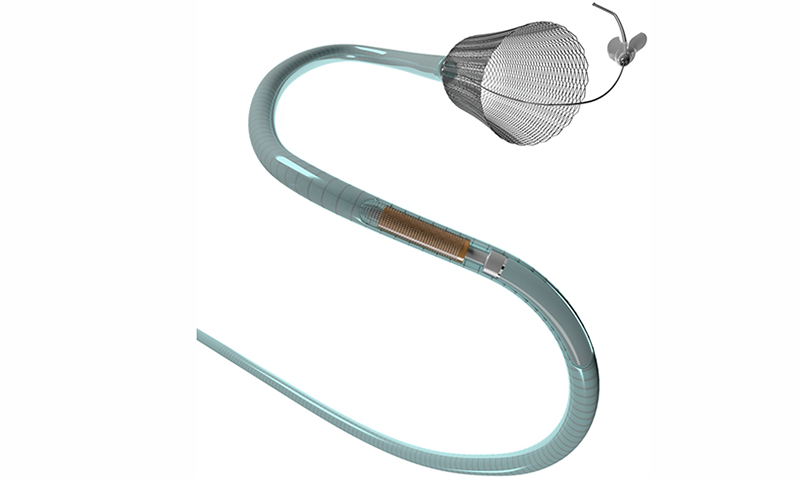Medtronic received FDA approval for its Pipeline Flex embolization device to be used on patients with small or medium, wide-necked brain aneurysms in the territory from the petrous to the terminus of the internal carotid artery. Previously, the device was only indicated for the endovascular treatment of adults with large or giant wide-necked intracranial aneurysms (IAs) in the internal carotid artery from the petrous to the superior hypophyseal segments.
Read more Abbott, Medtronic Driving Deep Brain Stimulation Innovation for Parkinson’s Disease
An estimated 500,000 people worldwide die each year due to ruptured brain aneurysms, with half the victims younger than 50 years of age.
The Pipeline Flex embolization device is designed to divert blood away from an aneurysm. It cuts off blood flow to the aneurysm, reconstructing the diseased section of the parent vessel.
The FDA granted approval based on clinical data from the Prospective Study on Embolization of with the Pipeline Device (PREMIER) trial, which expands understanding of the safety and efficacy for this device for a broader patient population.
The study analyzed 141 subjects with a mean aneurysm size of 5.0±1.92 mm. Data showed one-year occlusion rates of 76.7 percent with the use of 1.1 device per subject on average and a 2.2 percent occurrence of major stroke or neurological death.

Read more Hong Kong PolyU Develops Robotic Arm to Help Stroke Patients Move Upper Limb
“This is the second Investigational Device Exemption (IDE) study for this implant which gained FDA approval after completing the ‘Pipeline for Uncoilable or Failed aneurysms’ (PUFs) trial, a 5-year study for large and giant wide-necked aneurysms of the intracranial internal carotid artery (ICA) where efficacy rates were reported at 70.8 percent at 1 year that progressed to 95 percent in subjects with angiographic follow up at the 5 year time period. In the PUFs study the overall occurrence of major stroke or neurological death was 5.6 percent4. There were no documented cases of aneurysm recurrence in patients treated with the implant,” said a press release.
“PREMIER is another landmark study with Pipeline and moves the bar on the safe treatment of wide-necked brain aneurysms,” said Dr. Ricardo Hanel, neurosurgeon, director of Stroke and Cerebrovascular Center at Baptist Health in Jacksonville, Fla., and principal investigator for the PREMIER trial. “This data changes the way we, as physicians, think about using Pipeline Flex to treat our patients.”












